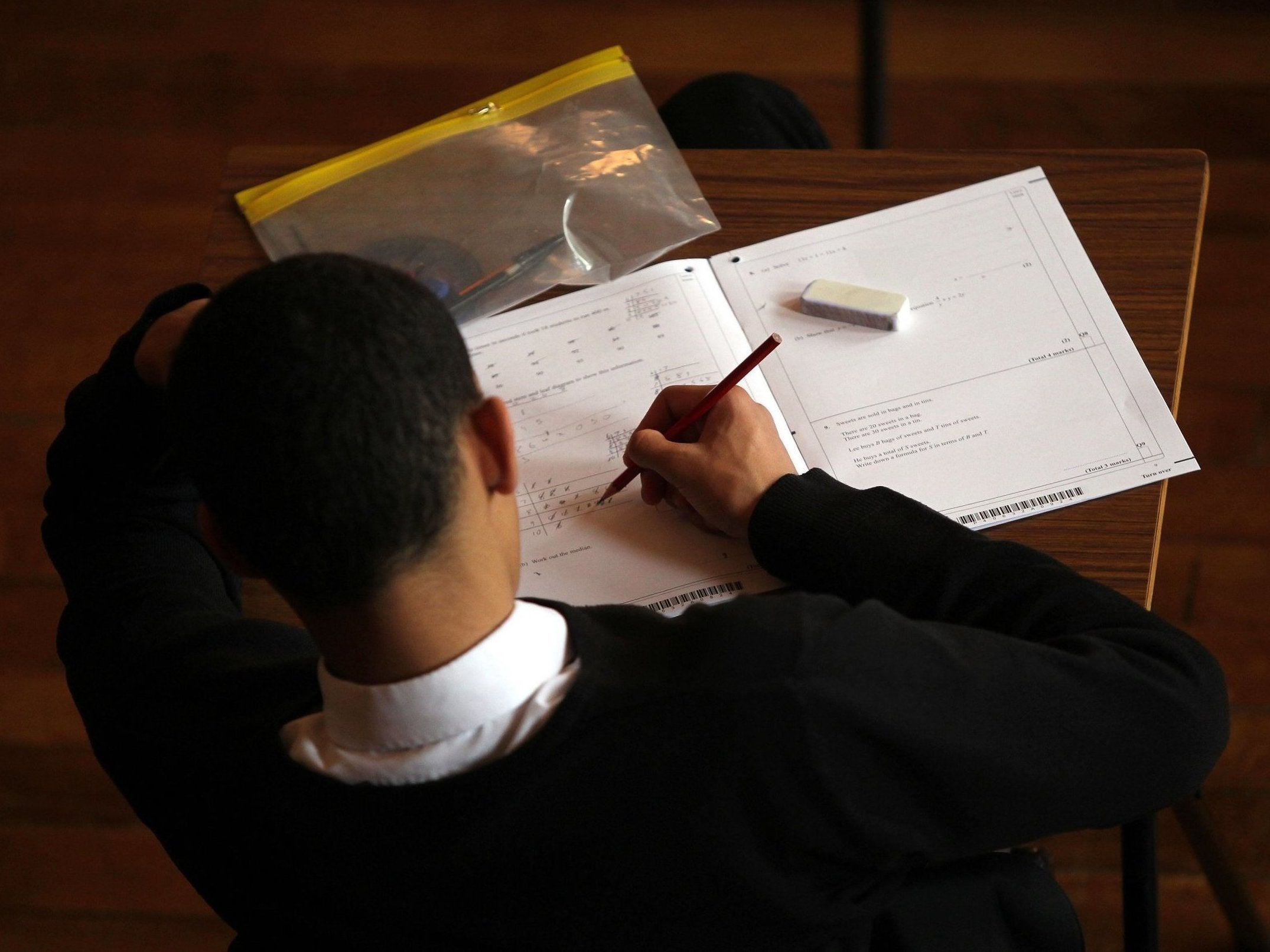Black students more likely to be incorrectly put in lower ability maths set, new research finds
'You can see how these gender and ethnic stereotypes may be bleeding into set placements'

Your support helps us to tell the story
From reproductive rights to climate change to Big Tech, The Independent is on the ground when the story is developing. Whether it's investigating the financials of Elon Musk's pro-Trump PAC or producing our latest documentary, 'The A Word', which shines a light on the American women fighting for reproductive rights, we know how important it is to parse out the facts from the messaging.
At such a critical moment in US history, we need reporters on the ground. Your donation allows us to keep sending journalists to speak to both sides of the story.
The Independent is trusted by Americans across the entire political spectrum. And unlike many other quality news outlets, we choose not to lock Americans out of our reporting and analysis with paywalls. We believe quality journalism should be available to everyone, paid for by those who can afford it.
Your support makes all the difference.Black students are two-and-a-half times more likely than white pupils to be wrongly placed in a lower ability set for maths, new research has found.
Secondary schools should consider reducing the use of setting and streaming as there are “risks” with the practice, researchers from UCL Institute of Education and Queen’s University Belfast said.
According to an unpublished research paper seen by the education magazine Tes, black pupils were 2.54 times more likely to be misallocated to a lower set in maths, compared with white pupils.
Meanwhile, almost a third (31.1 per cent) of pupils were placed in maths sets that were either higher or lower than their results at the end of primary school would have warranted.
The academics analysed data from 9,301 Year 7 pupils in England and compared which maths set the pupils should have been put in – based on their Sats scores – with the sets they were placed in.
Professor Becky Francis, director of the UCL Institute of Education, told the magazine: “I simply think it shows the power of stereotypes.
“It’s not to suggest that individual teachers are making racist or sexist decisions on the spot, but in terms of overall trends you can see how these gender and ethnic stereotypes may be bleeding into set placements.”
But the researchers found no evidence that set misallocation was associated with a pupil’s social-economic background.
The findings are the latest in an academic study into streaming and setting in schools – which has found that disadvantaged and black pupils are more likely to be put into the bottom sets.
The majority of secondary schools in the UK group students by ability in maths and English – and the practice is widely seen to be popular with parents.
But Professor Francis added: “Given what we know about the risks, minimising setting and certainly streaming, if possible, is something for teachers to think about.”
Just this week, YouGov released the results of a poll of children showing that almost four in ten would rather be in sets than in mixed-ability groups.
The poll, of children aged between six and 15, found 39 per cent choose banded classes, while three in ten (30 per cent) preferred mixed ability groups.
Join our commenting forum
Join thought-provoking conversations, follow other Independent readers and see their replies
Comments